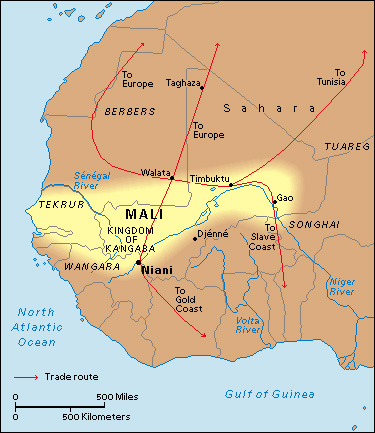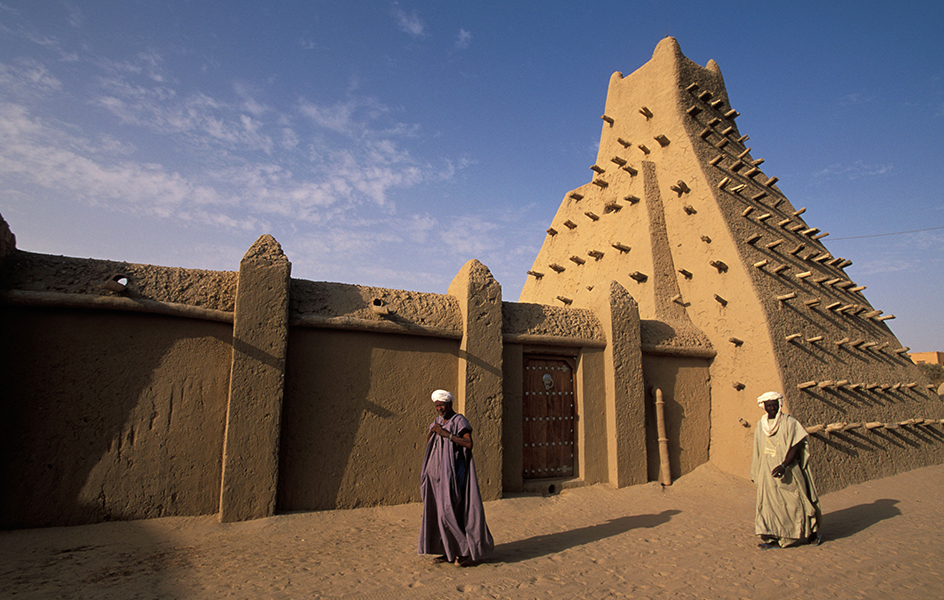Mali << MAH lee >> Empire was a powerful empire that flourished in West Africa from about 1240 to 1500. At its height, the Mali Empire controlled most of what are now Gambia, Guinea, Mali, and Senegal, and parts of present-day Burkina Faso, Mauritania, and Niger.

Scholars trace the Mali Empire’s origins to Kangaba, a small kingdom of the Malinke people that developed in the 900’s. As the Ghana Empire declined in the late 1000’s, the 1100’s, and the 1200’s, Kangaba and other small states fought for control of the old empire’s lands. Between 1235 and 1240, the king of Kangaba, Sundiata Keita, conquered the other states and founded the Mali Empire (see Sundiata Keita).
Mali reached its height of power and achievement under Mansa Musa, who ruled from 1312 to about 1337 (see Mansa Musa). During that time, Timbuktu became a famous center of learning, especially in law and the study of Islam, the Muslim religion.

The cities of the Mali Empire were centers for the caravan trade from beyond the Sahara. The people were successful farmers and herders. Members of the governing classes were Muslims, but most of the people continued to follow traditional African spiritual beliefs.
After about 1400, Songhai and other states conquered Mali’s outlying areas. By 1500, the Songhai Empire controlled most of the territory of the former Mali Empire.
